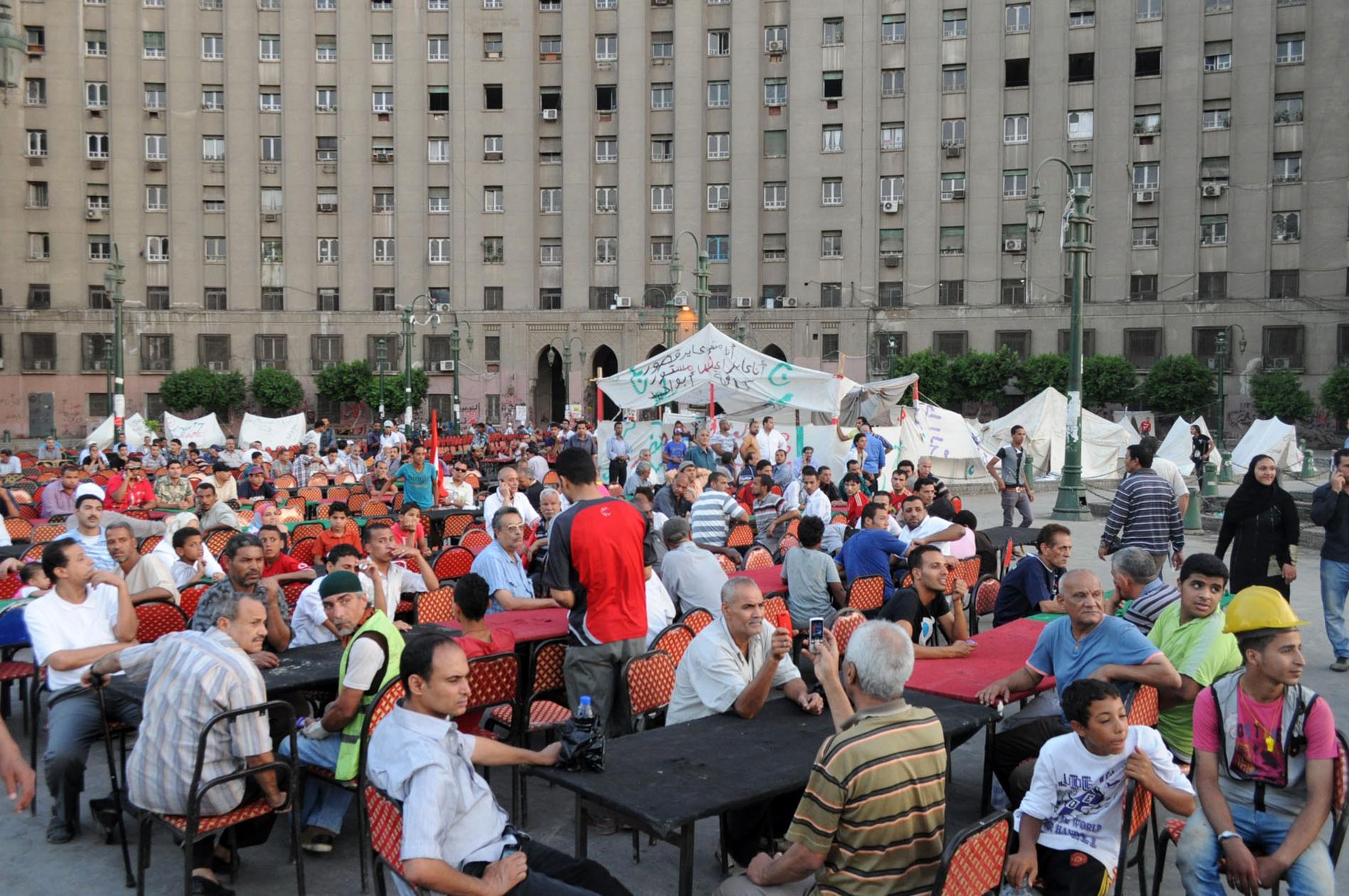The New York Times has today’s must-read on Egypt, where President Mohamad Morsi was removed from power last week by his nation’s military and where deep divisions threaten what promises to be a tense transition to a new government. The surprising takeaway from the ground: The long lines for gas that were common only weeks ago are gone, the once cripplingly unreliable electric power grid is now humming along, and—perhaps most noteworthy—the police are back on the streets doing their jobs. All that, the paper concludes, “seems to show that the legions of personnel left in place after former President Hosni Mubarak was ousted in 2011 played a significant role — intentionally or not — in undermining the overall quality of life under the Islamist administration of Mr. Morsi.”
The big question, of course, is the intentionally-or-not part of that observation. The sudden turnaround has the Muslim Brotherhood and Morsi’s allies crying conspiracy. (“This was preparing for the coup,” said Naser el-Farash, who served as a spokesman in Morsi’s government.) Morsi critics, meanwhile, contend that the newfound gains in everyday living are merely proof of just how poorly Morsi was doing his job. (“We had a disease, and we got rid of it,” Ayman Abdel-Hakam, a criminal court judge from a Cairo suburb, told the paper.)
Like pretty much everything that’s going on in Egypt right now, it’s tough to say with any certainty exactly what happened. The safest bet is probably a little bit from column A and a little bit from column B. But regardless of what role the so-called “deep state” played in undermining the infrastructure of the Egyptian government, several of Morsi’s powerful enemies are making no secret of the fact that they did their best to lay the groundwork for the efforts that ultimately ousted him:
Working behind the scenes, members of the old establishment, some of them close to Mr. Mubarak and the country’s top generals, also helped finance, advise and organize those determined to topple the Islamist leadership, including Naguib Sawiris, a billionaire and an outspoken foe of the Brotherhood; Tahani El-Gebali, a former judge on the Supreme Constitutional Court who is close to the ruling generals; and Shawki al-Sayed, a legal adviser to Ahmed Shafik, Mr. Mubarak’s last prime minister, who lost the presidential race to Mr. Morsi. …
Mr. Sawiris, one of Egypt’s richest men and a titan of the old establishment, said Wednesday that he had supported an upstart group called “tamarrod,” Arabic for “rebellion,” that led a petition drive seeking Mr. Morsi’s ouster. He donated use of the nationwide offices and infrastructure of the political party he built, the Free Egyptians. He provided publicity through his popular television network and his major interest in Egypt’s largest private newspaper. He even commissioned the production of a popular music video that played heavily on his network. “Tamarrod did not even know it was me!” he said. “I am not ashamed of it.”
You can read the full NYT piece here.
